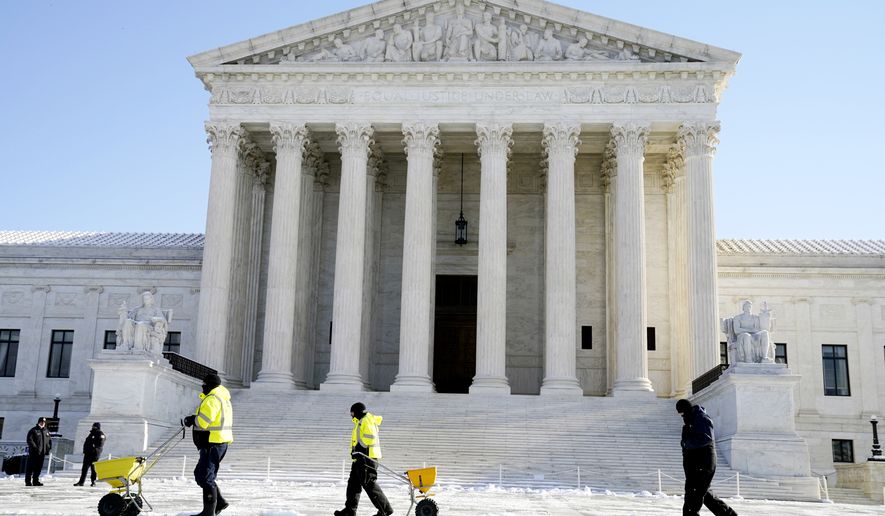The Supreme Court on Thursday rejected a request from abortion clinics to speed up action on a case in lower courts challenging Texas’s new law restricting abortions after about 6 weeks of pregnancy, and allowing private citizens to enforce the law by lawsuit.
While the justices have allowed the law to remain in effect, they also said a challenge to the law could proceed in lower courts. But abortion-rights advocates say a key appeals court is now slow-walking the case, preventing a district judge from reaching a final ruling.
The advocates had asked the Supreme Court to step in and order action, but a majority of justices declined.
In a vehement dissent, the high court’s three Democrat-appointed members blasted their colleagues on the Supreme Court and the judges on the 5th U.S. Circuit Court of Appeals for refusing to take action.
“This case is a disaster for the rule of law and a grave disservice to women in Texas, who have a right to control their own bodies,” wrote Justice Sonia Sotomayor. “I will not stand by silently as a State continues to nullify this constitutional guarantee.”
Texas’s law is one of two major challenges to federal abortion rights doctrine now pending before the Supreme Court.
The law’s novel approach of allowing private citizens to enforce it through lawsuits against those who perform abortions has sparked a major constitutional examination.
The law took effect Sept. 1.
In a December ruling, the Supreme Court said challengers couldn’t bring a lawsuit against judges or clerks, trying to block them from receiving or ruling on the private-citizen lawsuits. But the justices said a challenge to Texas medical licensing authorities could proceed.
That is the issue pending before the 5th Circuit. This week, that court shipped the case to the Texas Supreme Court, rather than sending it back to a federal district judge.
Another case before the Supreme Court, out of Mississippi, provides a more direct challenge to Roe v. Wade, the 1973 decision that established a national constitutional right to abortion.
• Stephen Dinan can be reached at sdinan@washingtontimes.com.




Please read our comment policy before commenting.